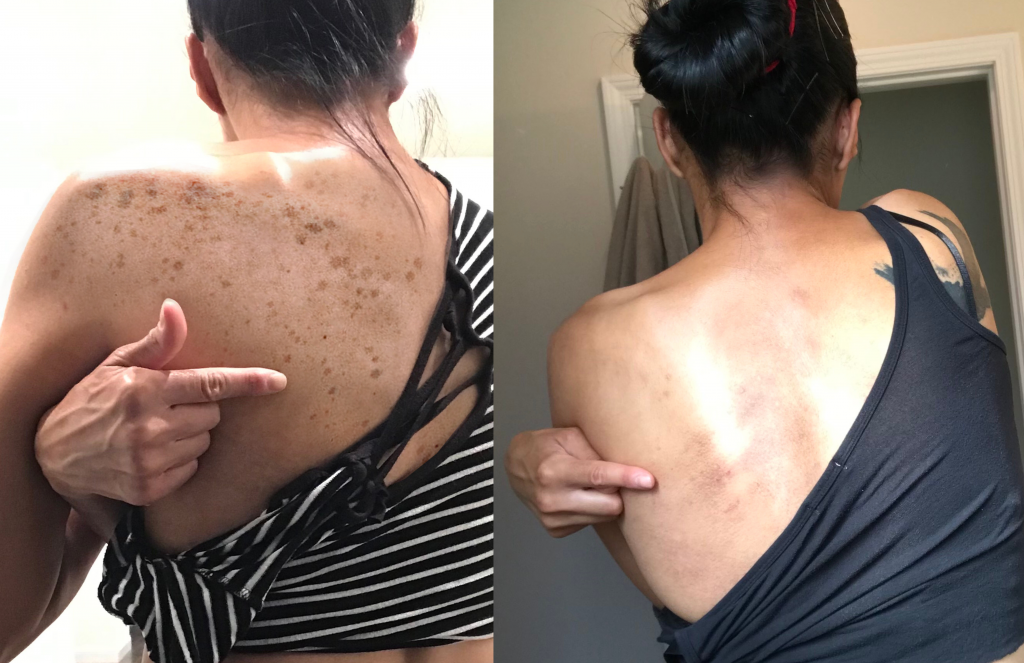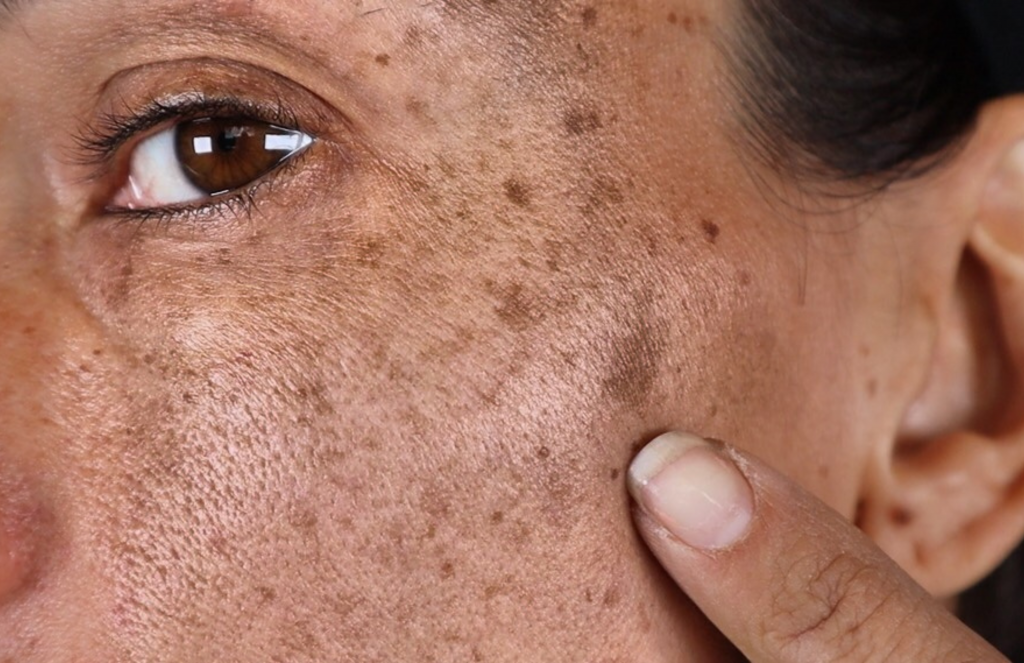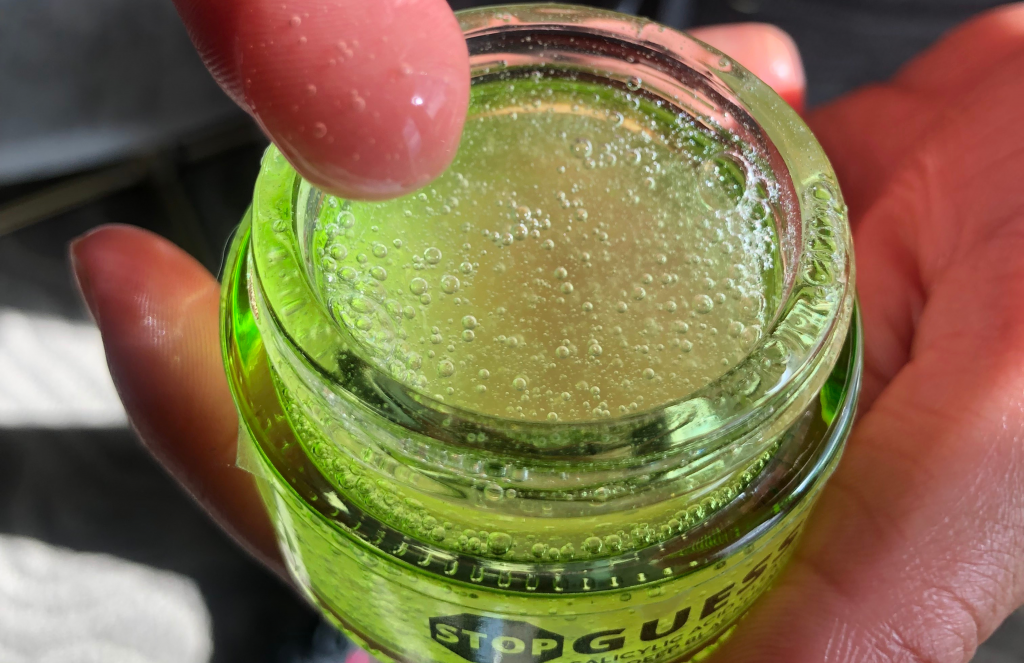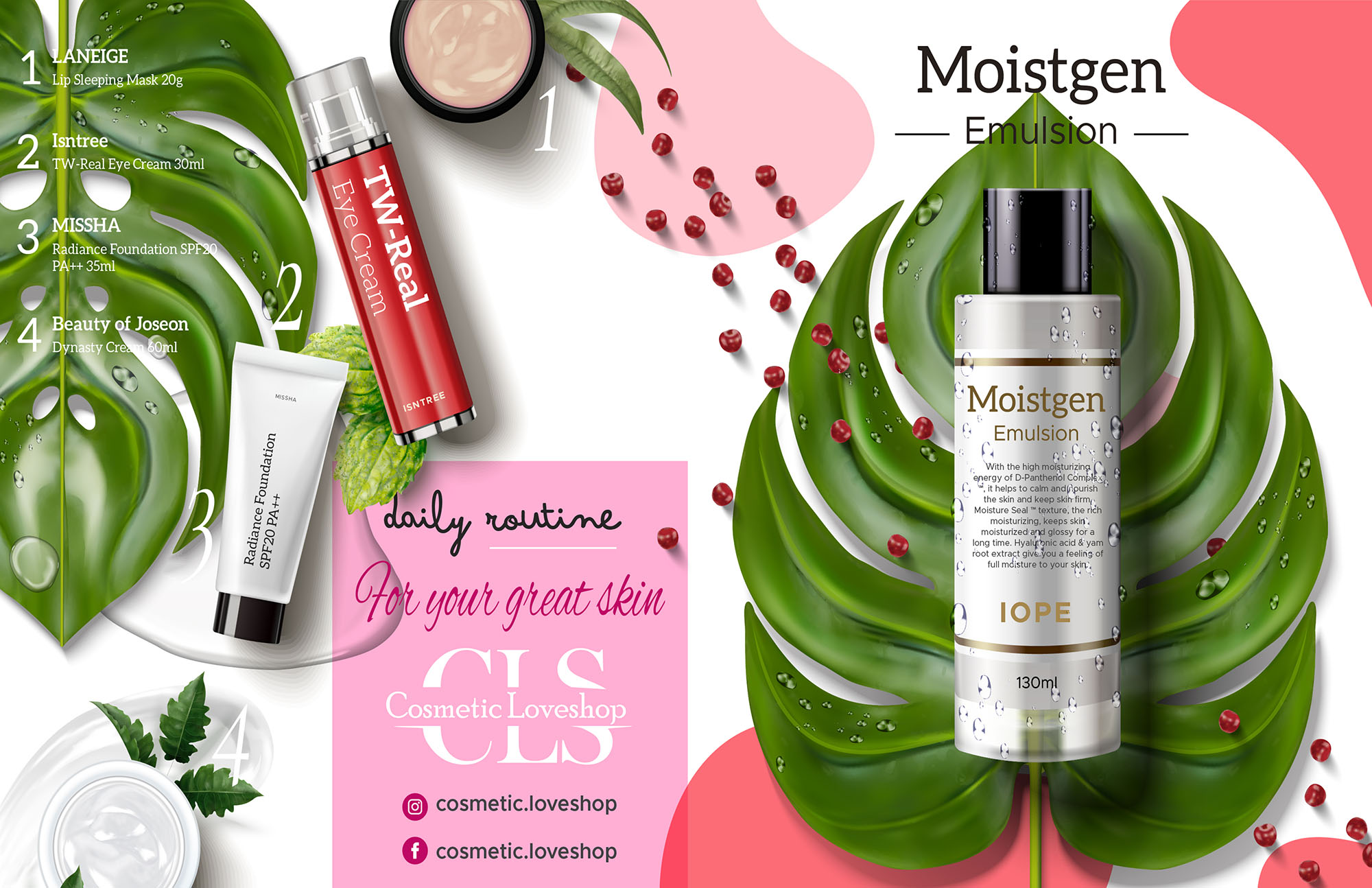
Dark spots, also known as hyperpigmented spots, are generally patches on the skin which have gotten darker in color than the nearby area. This darkening happens when an excess of melanin is deposited on the skin. These patches can occur on any part of the body. These patches can appear on people of any age, gender, and skin type.
A number of causes can lead to the development of dark spots on different parts of the body. Some of them are;
Sun damage is the primary factor in the development of dark spots. Melanocytes respond to the stimulation caused by UV radiation by producing melanin, which functions as a natural sunscreen and protects the skin. Melanin is beneficial because it is able to re-distribute the energy that is absorbed from ultraviolet light. The sun, on the other hand, can stimulate the development of an excessive amount of melanin, which can result in dark spots on the skin.
Post-breakout irritation causes hyperpigmentation. As acne cures, a dark area of pink, red, brown, or black persists. Inflammation can make spots bigger and darker. Experts caution against picking acne for a reason. Popping pimples can cause irritation and dark spots.
Melasma is a typical side effect of hormonal changes. A change in hormones boosts melanin formation during gestation, hormone treatment, or birth control changes. Pregnant women have black spots on the face, cheeks, nose, jawline, forehead, and chin. This hyperpigmentation lasts until pregnancy stops or hormones even out. Sun and heat can aggravate hormone-triggered hyperpigmentation. High temperatures can increase hyperpigmentation and dark spots.
It may appear that hyperpigmentation is more of a problem during the summer months and less of one during the cooler fall or winter, but this is not the case. Dry weather, freezing temperatures, and decreased humidity can all produce dry patches on the skin and make existing skin diseases such as dermatitis, acne, and eczema worse, leaving behind persistent dark spots. But these are not permanent dark spots; they can fade away with the proper treatment.
Dark spots are not permanent with the help of a number of products available in the market. A few of them are mentioned below;

Hydroquinone has to be the most effective treatment for dark spots. It is a very effective bleaching agent for lightening hyperpigmentation, and it may be very useful for melasma treatment. Hydroquinone can also be extremely irritating, and it is slowly being phased out of over-the-counter products as a result. This is a kind of positive development since you need to consult a dermatologist before attempting to use hydroquinone in order to get the most out of the treatment while experiencing the fewest possible negative effects.
Fast Spot Treatment for Dark Spots, Safe Home Treatment, Hydroquinone Maximum Strength

The antioxidant power of vitamin C cannot be underestimated. When it comes to skin care, research from different sources reveals that it can protect against UV damage, enhance collagen levels, and inhibit the development of melanin to halt hyperpigmentation.
Cleanser for Fast Dark Spot Removal / Color Correction, Safe Home Treatment for Hyperpigmentation & Melasma, Hydroquinone Maximum Strength

Glycolic acid can lighten dark spots and hyperpigmentation. Thus, it is a risk-free substance to use if you want to brighten and level out your complexion. Glycolic acid helps to level out skin tone by exfoliating the surface of your skin and eliminating dead skin cells that are darker and more melanin-stained. It works by suppressing the level of melanin.
You may check out the website below to discover if the dark spots on your face aren’t going away.











Copyright © 2025 VANITY VIP Magazine. All rights reserved
We use cookies to improve your experience on our site. By using our site, you consent to cookies.
Manage your cookie preferences below:
Essential cookies enable basic functions and are necessary for the proper function of the website.
These cookies are needed for adding comments on this website.